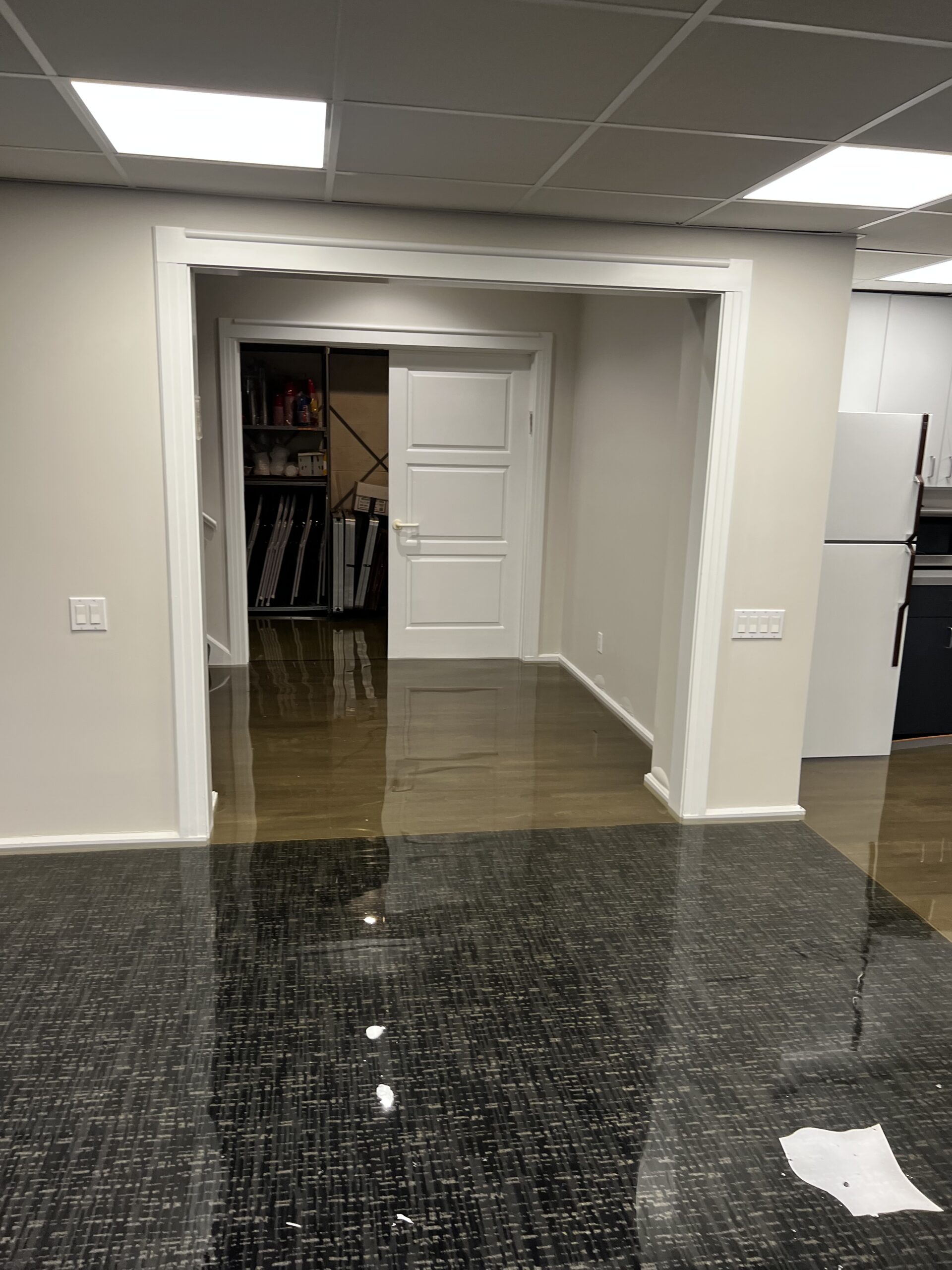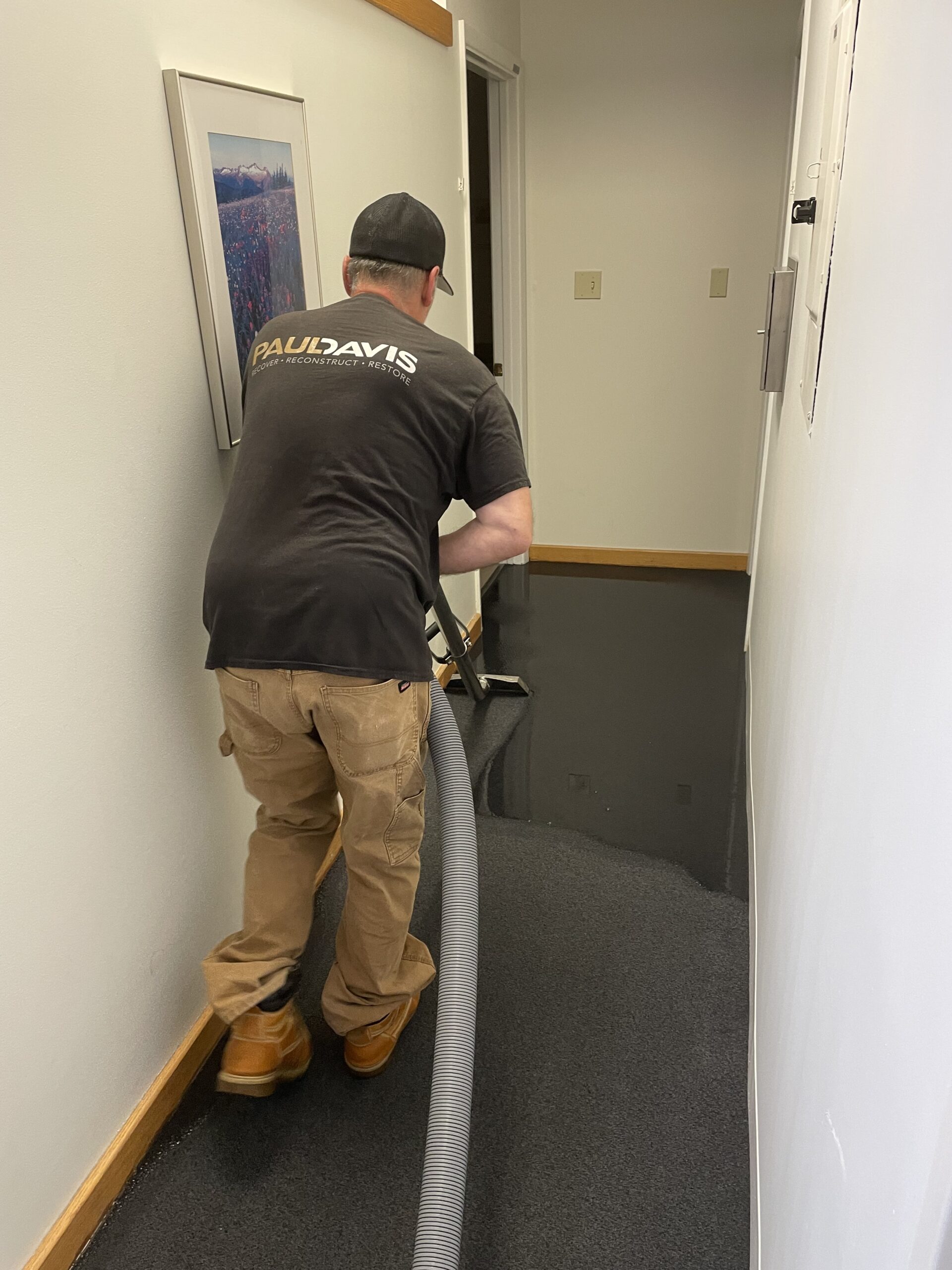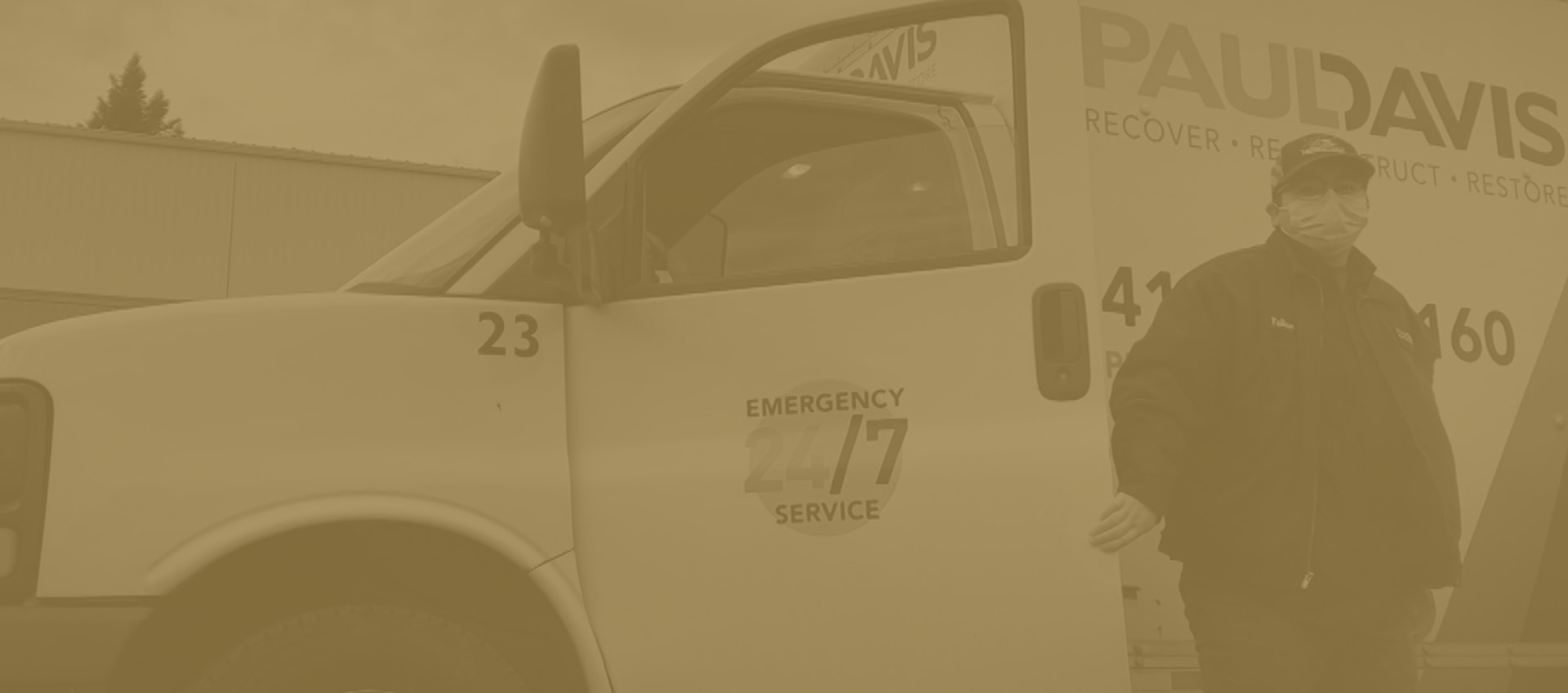
Have you gone to your basement to unexpectedly find standing water? Paul Davis can help! Our highly skilled team of water mitigation specialists and restoration professionals can help with 24/7 emergency basement flooding services. In the meantime, check out our comprehensive guide to preventing and mitigating future basement floods.
Unfortunately, you do not need heavy downpours for your home’s basement to flood. In fact, regular spring showers can cause basements to flood.
The ever-changing seasons can also contribute to unwanted plumbing problems in your home. Melting ice and snow can cause extra water to puddle in your gutters as a result of constant temperature fluctuations. Excess water from overland flooding can drip from your downspouts and enter your home from cracks in your foundation or mortar joints. Call us at (440)-834-1155 for 24/7 emergency flooding services.
Everything You Need to Know About Basement Flooding
Basement flooding is a homeowner’s nightmare, causing significant property damage and emotional distress. When water invades your home’s lowest level, it can destroy cherished belongings, compromise structural integrity, and create long-lasting problems like mold growth.
Dealing with a flooded basement is incredibly stressful. Homeowners face:
- The shock of discovering standing water
- Urgent need to salvage personal items
- Worry about potential health hazards
- Uncertainty about repair costs and insurance coverage
- Disruption to daily life during cleanup and restoration
Whether caused by severe weather, plumbing issues, or other factors, basement flooding demands immediate attention and often requires professional intervention.
The Most Common Causes of Basement Flooding
The common causes for basement leaks come from the pressure created by the water in the soil surrounding your foundation. There are three different types of pressure that form to cause flooding issues, including:
- Persistent rain causes soil to saturate, resulting in high water pressure that can cause a burst pipe
- Loose soil around your foundation absorbs water
- Rainwater from a window seeping into your basement
- Sewage backup from overloaded or damaged sewer lines forcing wastewater into basement drains
- Septic tank overflow or malfunction leading to water backing up into the lowest points of your home
- Storm damage overwhelming drainage systems and causing rapid water accumulation around the foundation
Signs of Basement Flooding
Standing water is a clear sign of a flooded basement. Other signs to look for are water stains on the floor or walls, foundation cracks, and calcification build-up. These signs can be caught before standing water appears which can be helpful to take care of the flooding as soon as possible.
How To Prevent Future Flooding
While many parts of the country consistently see extreme water and rain each year, it seems that the trend of unexpected rain and flooding in less common areas is continuing. People who live in areas prone to hurricanes or flooding will tell you firsthand that keeping a basement dry is no easy task. Regardless of where you live, there are some steps you can take to keep your basement as dry as possible.
To prevent basement flooding and protect your home, consider these few ways:
- Install An Electric Sump Pump And Battery Operated Backup Sump Pump
- Keep Sewage Away With The Installation Of A Backwater Valve
- Take A Look At Your Landscaping For Excess Water
- Check For Restrictions In Downspouts And Other Drainage Systems Before Rain
- Check For Water Heater Leaks
- Install Gutter Protection Or Regularly Clean Your Gutters
- Extend Your Existing Downspout Systems To Direct Water Flow Away From The Home
- Ensure Cracks And Crevices In Your Basement Walls/Floors Are Caulked And Sealed
- Ensure Proper Air Circulation To Avoid Excess Moisture

What To Do When Your Basement Floods
Follow these important steps when excessive basement flooding occurs in your home:
Contact the City Water Department
Local municipalities can inform you of your home’s mainline sewer system conditions. Research your pipeline and sanitation drain structure to gain a general understanding of any possible issues. Make sure the power is turned off to avoid electrical shocks and identify any source of water that may have caused the flooding.
Be Ready to Clean Flooded Area
Flooded basement cleanup can be a tricky task. Make sure to wear eye protection, gloves, and boots before heading to the basement to mop up a flood. Watch your steps carefully so you don’t spread sewage contaminants to other parts of your home. Bubbling sewer backup water can contain dangerous contaminants and harmful bacteria. Cover any exposed areas of skin, and keep children or pets clear of flooding areas before cleaning.
If the water is clean, it is okay to unblock a drain that is keeping any water from draining. If water is coming from a broken pipe, call a plumber immediately.
Mop and Dry Water
Thoroughly clean and dry the flooded basement. A wet vacuum is a great tool for removing floodwater. Another tool is a pool pump if you already have one for an inground pool. Once the majority of the water has been cleared and mopped, mix 8 tablespoons of liquid chlorine bleach with one gallon of water. Then disinfect and dry all surfaces that may have come in contact with the floodwater.
Throw Away Contaminated Items
Take photographs of damaged items for insurance claims purposes. Document everything thoroughly, as your insurance company will need detailed evidence to process your claim. Keeping these items is not worth the risk since many of them might be wet, contaminated, or toxic. When sorting through salvageable items, prioritize your safety and health over sentimental value.
Remove Damaged Drywall
Remove all flooded drywall within a 24-hour period. Your drywall is at risk of growing mold, so be sure to remove it to prevent water damage.
Install a Waterproofing System
Install an interior drainage system to keep water away from your basement. An interior floor drain connects to a sump pump, draining along the foundation joint where your basement floor meets. Sump pumps are at the lowest part of the basement and help drain the area from joints, where most water leakage occurs. Another option is weeping tile, which is a porous pipe used for underground water collection or discharge.
Efficient Ways to Pump Water Out of Your Basement
While it may be tempting to tackle basement water removal yourself, this task is best left to professionals. Flooding can create hazardous conditions, including electrical dangers and contaminated water. Professional water removal services offer several advantages:
- Expertise in handling various types of water damage
- Specialized equipment for efficient water extraction
- Safety protocols to mitigate risks associated with flooding
- Proper placement of powerful submersible pumps
- Ensuring correct discharge of water away from your home’s foundation
- Prevention of further damage to your property
- Reduction of potential health risks from contaminated water
These professionals use their knowledge and tools to handle the job efficiently and safely. Hiring experts not only ensures thorough water removal but also provides peace of mind during a stressful situation.
Safety Measures for Electrical Issues in a Flooded Basement
Electrical issues in a flooded basement present real dangers. It’s important to shut off the power to prevent electrical shocks. If you can’t reach the breaker safely, contact an electrician or your utility company immediately.
After ensuring safety, inspect your electrical systems for damage. Look out for frayed wires and damaged appliances. Do not touch any electrical equipment if it’s wet or if you’re standing in water.
Finally, hiring a professional electrician to evaluate and repair the damage before turning the power back on ensures your home’s safety. Regular maintenance can prevent future electrical issues in your basement.
Effects of Basement Flooding
Basement flooding can lead to significant damage to your home and property. Water damage can ruin carpets, furniture, and important items, making the space unusable. Mold growth poses health risks and can occur within 48 hours.
Structural damage is also a concern. Water can weaken foundations, causing cracks in the concrete basement floor and walls. Long-term exposure may require extensive repairs.
Furthermore, basement flooding can decrease your home’s value. Real estate investors see it negatively, and it can affect your home’s marketability.
Contact Paul Davis for Emergency Flooding Needs
Our team of qualified experts can access and fix any needed repairs. Our emergency service professionals can also inform you about preventative sewer drain measures to keep heavy rain away from your home.
Your home piping relies on how well you maintain your plumbing system and sewers. It’s advantageous to work with a trusted team that can help you take preventative measures for any emergency help you may need.
Your Cleveland area home may need a system for waterproofing during emergencies. If you can gather water before it leaks into your basement, you’ll be prepared for any basement flood. Call us at (440)-834-1155 for 24/7 emergency flooding services. Our team is there for immediate assistance with flooded basements in Cleveland. With our help, you can keep your home safe from long-lasting flooding issues.
FAQs
Can you fix a basement that floods?
Restoration and remediation specialists can help fix basement flooding. They may be able to seal the source of a leak with polyurethane caulk or hydraulic cement, but full restoration of a flooded basement usually requires professional expertise.
What causes floods in basements?
Multiple factors can cause basement flooding. Extreme weather conditions like heavy rain or house water systems failing can cause a large flooded area. Sewer backups, damaged pipes, or broken water heaters are all ways that your home’s foundation can be damaged.




